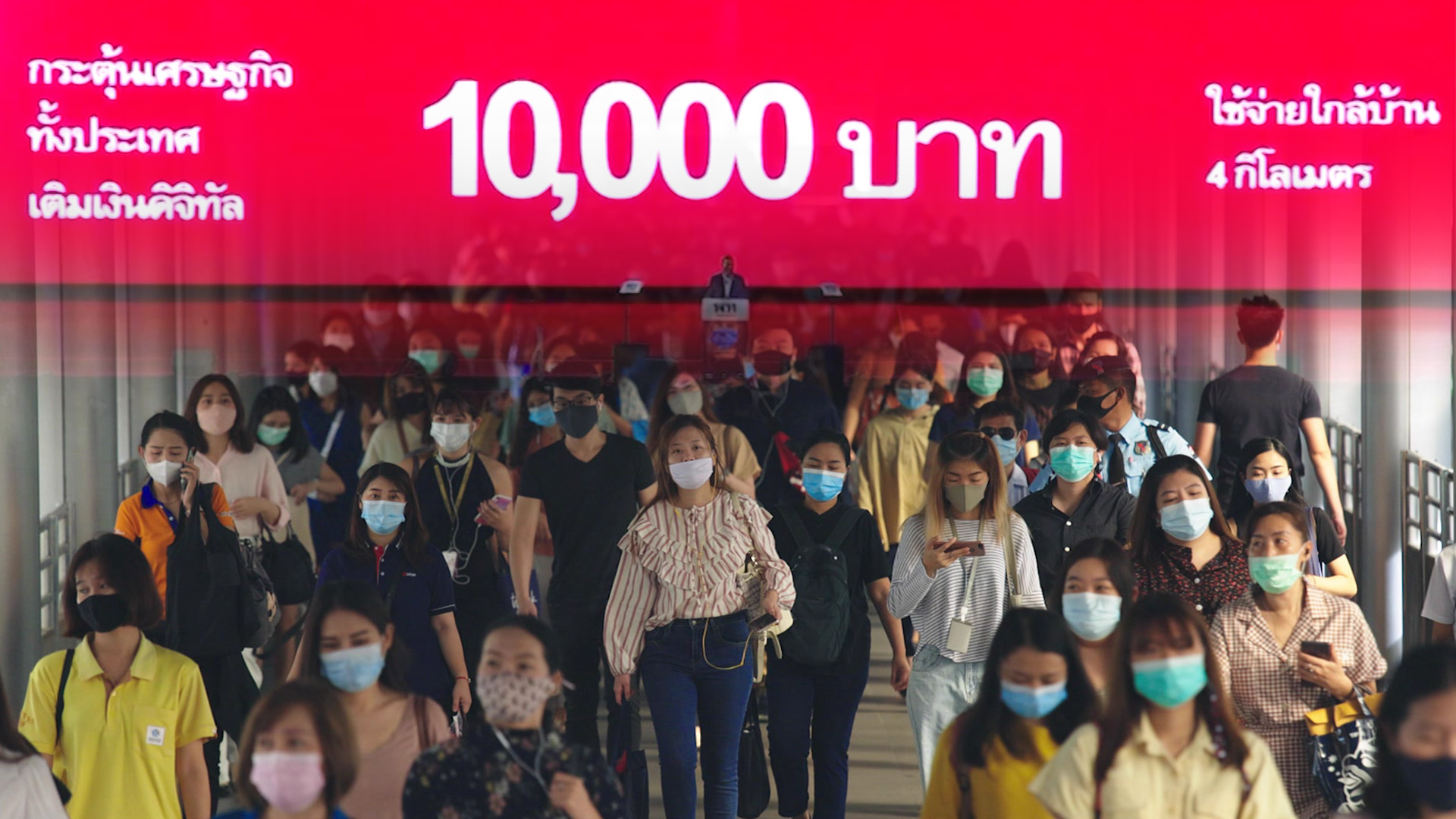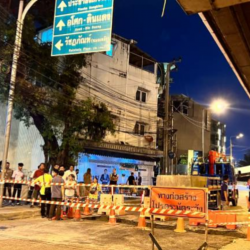Challenge of determining who qualifies for digital wallet scheme

How do you distinguish between the rich and the poor? The government subcommittee handling the digital wallet scheme believes it has an answer, even though the way the whole thing will be financed is still being debated.
It is proposing that individuals earning more than 25,000 baht a month and those with over 100,000 baht in their bank accounts should be classified as “rich” and therefore are not qualified for the 10,000-baht benefit under the much-publicised scheme. The question is, however, whether everyone will agree with such a classification.
Thai PBS World talked to Kirida Bhaopichitr Ph.D. of the Thailand Development Research Institute (TDRI), the country’s top policy think-tank specialising in economic development issues. Dr. Kirida shares her thoughts on the digital wallet scheme and the definition of the word ‘rich’ in economic terms.

Does 25,000 baht a month make you rich?
Dr. Kirida said, in economic terms, rich and wealthy individuals in Thailand typically earn at least 40,000 baht per month. They account for less than 20% of Thailand’s population.
“I have assessed the statistics of incomes in Thailand and to have a high income, a person would need to earn at least 40,000 baht per month…. but that is excluded (from the scheme). Of course, your wealth, or the money you have in your bank or how many cars you have, is a very crude indicator of how well off you are,” Dr. Kirida explained.
For this reason, individuals earning more than 25,000 baht per month, representing between 60% and 80% of the population, may not be considered to be rich. Therefore, the classification used by the subcommittee in their proposal may not be accurate, in the eyes of economists, as a means of distinguishing between the rich and the poor.
Handouts for all?
Dr. Kirida agreed, though, with the subcommittee’s proposal to downsize the scheme. She said the benefit should not be given to everyone who is 16 and over, but to specific groups who are in need.
Since statistics show that Thai people’s purchasing power has recovered from the COVID-19 pandemic, there is no urgent need to stimulate spending with handouts on the scale envisioned by the Srettha government.
She said the estimated cost of 560 billion baht for the digital wallet scheme will divert funding from other investment projects and increase the country’s public sector borrowing requirement.
Handouts for specific groups only?
Dr. Kirida suggested that, instead of a blanket coverage, the digital wallet scheme should be tailored to focus on people with low incomes, or people who make less than 25,000 baht a month, accounting for 20%-30% of the country.
“I want to emphasise that if you’re actually going to give handouts to people, I don’t think you should give them to those who are in the top 80% of the country (in terms of wealth). So, you should be focusing on those who are actually in the bottom 20% or 30%. So, actually, if you’re making ฿25,000 a month, you’re not at the bottom or (in that) 30% of the country,” she said.
She estimated that a 10,000-baht for the 15-16 million low-income earners would cost the government approximately 160 billion baht.
More investments needed to stimulate economy
Dr. Kirida said that support given to people who are in need will be immediately spent on purchases of basic necessities. People with high incomes, meanwhile, would spend the cash instead of their own money.
“According to economic research and studies all around the world, we find that giving cash handouts to those who are actually low-income earners or who really need money, once they get the money, they can spend it. It will be additional spending, so that it has what we call a ‘multiplier effect’, meaning one dollar or 1 baht given to a person who has low income will circulate in the economy and it will generate around 1.2 baht, because these people will buy goods that are locally made so it generates income for small businesses and enterprises,” she said.
She suggested, however, that a more effective way to stimulate the economy in the long term would be for the government to focus on investing in infrastructure, healthcare and education. She said investments in these fields have a greater multiplier effect in the long term than the digital wallet scheme would.
“In many countries around the world, for which we have economic research and studies, if the government spends money on investments, whether on infrastructure, health care or education, the multiplier effect will actually be even more than 1.4. It would go up to 1.5 to 1.7,” Dr. Kirida said.
Besides the issue of deciding who should benefit from the digital wallet scheme, it’s obvious that the government of Prime Minister Srettha Thavisin is facing other challenges related to the project. There is now a strong likelihood that its implementation will be delayed.
The biggest unanswered question remains, however, from where the government will get the money to fund the scheme.
By Warissara Sae-han, Thai PBS World






